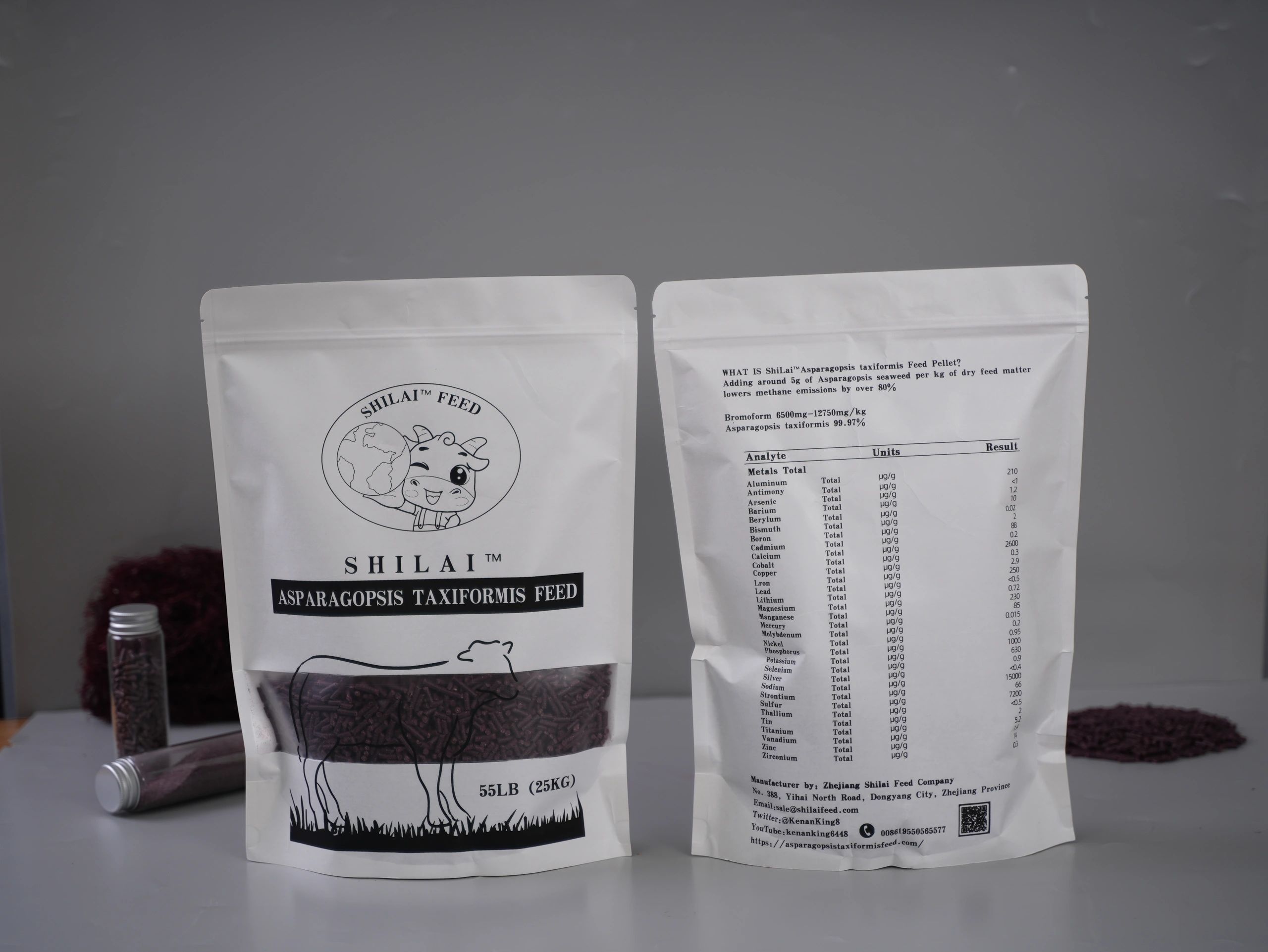Farming worldwide represents a substantial fraction of greenhouse gas emissions, principally from animal husbandry.
Methane is a powerful greenhouse gas that has a much higher warming potential than carbon dioxide, posing urgent climate risks.
Asparagopsis taxiformis, an oceanic red alga, shows potential as an effective strategy to reduce methane emissions from animals.
The alga carries a bioactive agent that inhibits the rumen microbes responsible for methane, lowering emissions from animals.
Mixing Asparagopsis taxiformis into diets has returned positive early-stage evidence for cutting methane from ruminant animals.
- Moreover, Asparagopsis taxiformis offers several additional commercial and environmental advantages.
- Enhanced nutritional value for livestock
- Potential to stimulate rural economies via seaweed value chains
Although additional studies and scale-up work are required, Asparagopsis taxiformis holds strong potential as a durable means to cut livestock emissions.
Leveraging Asparagopsis taxiformis Powder to Improve Animal Feeds
The powder and extract forms of Asparagopsis taxiformis could deliver new nutritional and environmental value in feeds.
Its profile of nutrients and active substances has the potential to raise livestock productivity and health.
Including A. taxiformis powder in diets has demonstrated methane-reducing effects in trials and can deliver essential dietary elements.
Further rigorous research is crucial to optimize dosage, processing, and long-term safety to unlock full commercial potential.
The Role of Asparagopsis taxiformis in Shaping Sustainable Animal Farming
The species is increasingly seen as an intervention to lessen the environmental footprint of conventional livestock production.
Integrating the algae into feeds may allow producers to substantially reduce on-farm methane emissions and environmental impacts.
Research findings indicate the seaweed may also enhance productivity and health markers in livestock alongside emission cuts.
More work to verify long-term safety and logistical viability is necessary, though early findings look promising.
Asparagopsis Feed Supplements for Methane Mitigation
This red alga is being developed as an approach that can substantially cut methane produced by grazing ruminants.
Compounds in Asparagopsis act on rumen microorganisms to suppress methanogenesis and lower methane output.
- Academic trials have recorded significant methane decreases for animals fed Asparagopsis under experimental conditions.
- Asparagopsis feed inclusion is recognized as a green approach to mitigating livestock methane.
- Farming operations are starting pilot projects to assess the adoption of Asparagopsis in feeds.
Asparagopsis: The Marine Ingredient Shaping Sustainable Livestock Systems
From ocean science to farm practice, Asparagopsis taxiformis is an emerging contender for sustainable methane mitigation.
- Trials that fed Asparagopsis to livestock documented marked methane reductions, pointing to strong environmental upside.
- This seaweed breakthrough may foster a new balance between productive farming and reduced ecological impact.

As global efforts intensify to find sustainable climate solutions, Asparagopsis stands out as a novel and actionable option for livestock methane mitigation.
Improving the Performance of Asparagopsis taxiformis as a Methane-Mitigating Feed Additive
Work is underway to determine optimal processing methods and inclusion rates to enhance A. taxiformis effectiveness.
The Science Behind Asparagopsis taxiformis's Methane-Lowering Effects
Research explains the effect as chemical interference with rumen methanogens, reducing methane synthesis during digestion.
Bromoform-type compounds found in Asparagopsis are central to its methane inhibition effect, while scientists examine effects and safety.
Embedding Asparagopsis in Feed Formulations to Drive Sustainable Farming
The species provides a complementary mix of nutrients and bioactives that feed formulators can leverage for sustainability.
Formulating with Asparagopsis can enhance diets via added nutrients, better digestion, and possible reductions in pathogenic microbes.
Asparagopsis taxiformis: Nature-Driven Gains for Food System Sustainability
Asparagopsis taxiformis represents an emerging, nature-based intervention to lower agricultural emissions and support sustainable food systems.
- In addition, the seaweed contributes essential nutrients and beneficial compounds to diets.
- Experts are studying how to deploy Asparagopsis across aquaculture, livestock, and feed manufacturing sectors.
Adoption of Asparagopsis across feed systems may lead to substantial cuts in agriculture’s greenhouse gas footprint.
How Asparagopsis Feed Additives Can Improve Animal Health and Performance
Asparagopsis is attracting interest as a supplement that can lower methane and concurrently bolster animal health and efficiency.
Use in diets has been associated with improved nutrient absorption and feed conversion, which can support weight gain and overall condition.
Additional functional properties such as antioxidant or immunomodulatory effects have been observed that could strengthen animal health.
As markets prioritize sustainability, Asparagopsis is emerging as an attractive solution pending further research and industry rollout.
Asparagopsis-Enabled Feeds as a Step Toward Carbon Neutral Farming
The industry’s need to reduce its environmental impact makes Asparagopsis a relevant intervention to cut methane from ruminants.
- The scientific consensus points to the seaweed’s compounds as inhibitors of rumen methanogenesis, limiting methane output.
- Controlled experiments have shown that feeding Asparagopsis can yield notable declines in methane production.
This innovative approach not only offers a greener feed option but also the potential to transform food production toward climate-resilient outcomes.